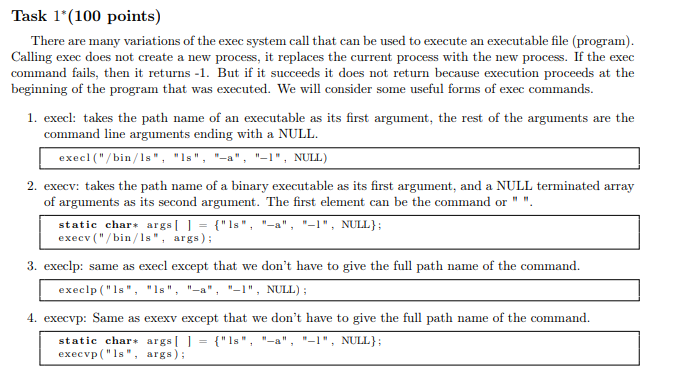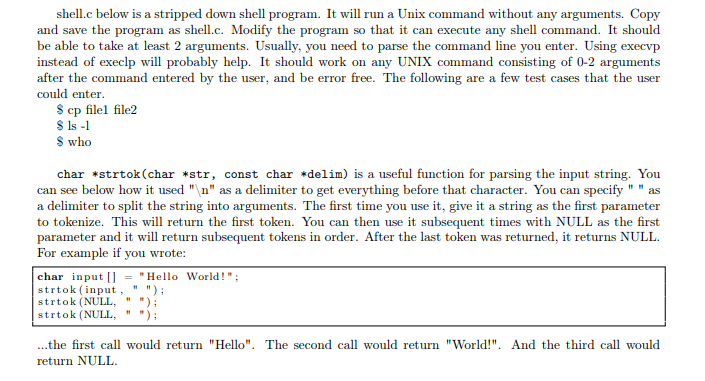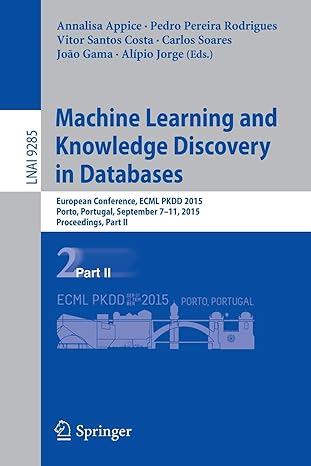Answered step by step
Verified Expert Solution
Question
1 Approved Answer
OS class. c prgramming code. shell.c file below. #include #include #include #include #include int main() { int PID; char lineGot[256]; char *cmd; while (1){ printf(cmd:
OS class. c prgramming code. 
 shell.c file below.
shell.c file below.
#includeTask 1(100 points) There are many variations of the exec system call that can be used to execute an executable file (program) Calling exec does not create a new process, it replaces the current process with the new process. If the exec command fails, then it returns -1. But if it succeeds it does not return because execution proceeds at the beginning of the program that was executed. We will consider some useful forms of exec commands. 1. execl: takes the path name of an executable as its first argument, the rest of the arguments are the command line arguments ending with a NULL execl("/bin s"Is"-a", "-1*, NULL) 2. execv: takes the path name of a binary executable as its first argument, and a NULL terminated array of arguments as its second argument. The first element can be the command or " ". static char * args| = {"ls", "-a", "-I", NULL); execv(" bin/sargs); 3. execlp: same as execl except that we don't have to give the full path name of the command. exec lp ( " ls " , " ls " , "-a" "-I " , NULL) ; , 4. execvp: Same as exexv except that we don't have to give the full path name of the command. static char* args[ ] = {"ls", execvp("Is" args); "-a", "-I", NULL)#include #include #include #include int main() { int PID; char lineGot[256]; char *cmd; while (1){ printf("cmd: "); fgets(lineGot, 256, stdin); // Get a string from user (includes ) cmd = strtok(lineGot, " "); // Get the string without the if( strcmp(cmd, "e") == 0 ) // loop terminates when "e" is typed exit (0); // creates a new process. Parent gets the child's process ID. Child gets 0. if ( (PID=fork()) > 0) { wait(NULL); } else if (PID == 0) /* child process */ { execlp (cmd, cmd, NULL); /* exec cannot return. If so do the following */ fprintf (stderr, "Cannot execute %s ", cmd); exit(1); /* exec failed */ } else if ( PID == -1) { fprintf (stderr, "Cannot create a new process "); exit (2); } } }
Step by Step Solution
There are 3 Steps involved in it
Step: 1

Get Instant Access to Expert-Tailored Solutions
See step-by-step solutions with expert insights and AI powered tools for academic success
Step: 2

Step: 3

Ace Your Homework with AI
Get the answers you need in no time with our AI-driven, step-by-step assistance
Get Started


